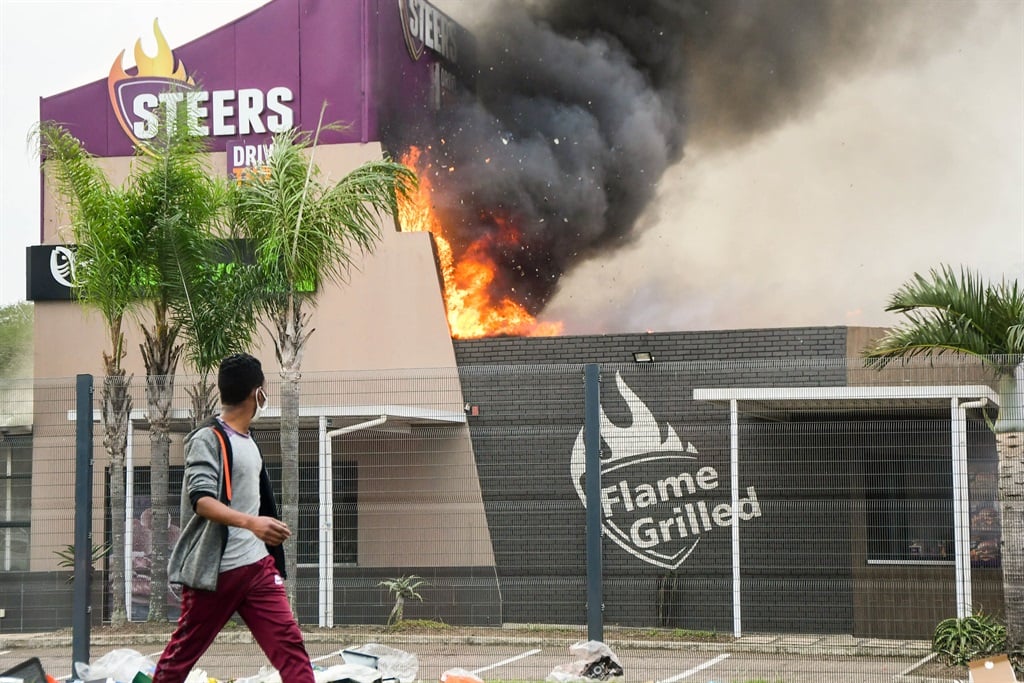
Durban has borne the brunt of the ongoing unrest, with 45 000 businesses out of commission and an estimated R16 billion in stolen stock, and damage to infrastructure and equipment.
eThekwini Mayor Mxolisi Kaunda made this announcement during a media briefing on Wednesday, as the city begins to count the costs of the impact of the riots.
Preliminary estimates of the economic impact revealed that the unrest had cost the metro “R1 billion in terms of loss of stock and about R15 billion of damage to property and equipment”, Kaunda said.
He also announced that 5 000 informal traders had been severely affected by the criminality that has wreaked havoc in the coastal city, with a further “40 000 formal business also affected, including small businesses”.
The expectation was that “a large portion of those” small businesses “may never recover from this upheaval”.
A staggering “129 000 jobs” are at risk, following the destruction of malls, factories and certain industries with “a large portion of those workers” likely to be added to the country’s skyrocketing unemployment figures.
Where it all began
Chaos and looting have prevailed since former president Jacob Zuma’s arrest last week. Initially, the protest appeared to be a call for the release of the former president, however, the situation has degenerated into acts of criminality.
In Durban and surrounding areas, rioters breached the perimeter of the 60 000m² Massmart distribution centre in Riverhorse Valley on Monday night, and the targeting of malls and industrial warehouses has also been the order of the day since then.
READ: KZN burns for Zuma
Despite the announcement that the SA National Defence Force would be deployed in the city – to relieve a flagging police contingent – wanton theft continued and people streamed in and out of the warehouse on Tuesday and Wednesday.
Kaunda condemned such acts, saying they had no place in a democratic South Africa.
Racial tension
He also condemned the racial tension that has arisen as residents take it upon themselves to protect not only their shopping centres but their own neighbourhoods from looters and vandals.
“This morning we have committed to further engage with committees [who have taken it upon themselves to protect their communities] and this will be a month-long programme that the city will be rolling out in an attempt to defuse the simmering racial tension in these communities, which have been living together for many years,” said Kaunda.
On Tuesday, the death toll from the riots in KwaZulu-Natal had risen to 26.
KwaZulu-Natal Premier Sihle Zikalala said that most of these deaths occurred during a stampede while people were looting.
Zikalala described this as a reminder of the country’s dark past.
“As a province, we’re going through a lot of pain and difficulty,” he said.
| ||||||||||||||||||||||||||

